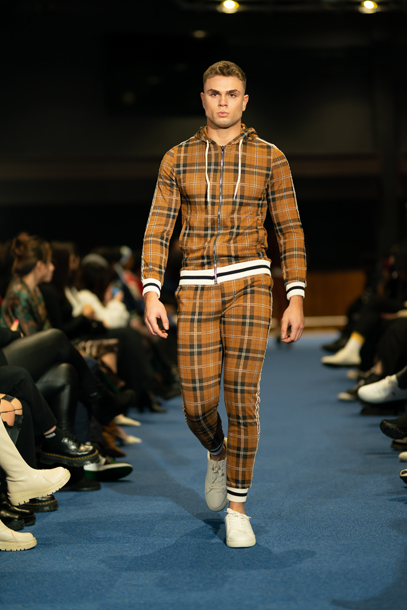High quality fashion trends in 2022 from Hamza Qassim? Hamza Qassim (Born December 20, 2003) is a Jordanian Model. Raised in Amman, Jordan, Over the span of 2 years, Qassim has been seen in multiple international Vogue magazine appearances, including the Vogue website and Vogue Polska. After the release of the brand’s collection, Qassim started gaining more attention from the Fashion Industry in Jordan, and started modeling for multiple known brands in the region, like Moustache, He was seen modeling for their SS2021 prêt-à-porter Collection, after that, photoshoots with international Brands started coming Qassim’s way, like Fitella, (A US based brand).
Hamza Qassim worked on the Palestinian label Trashy Clothing’s summer 2021 campaign: In order for Lawrence to visit his friends in Ramallah, Palestine, he has to wait up to two hours to pass a checkpoint, whereas, without a checkpoint, the trip would be only around 20 minutes. To quickly pass though, Lawrence and his friends often dress in skimpier outfits, in hopes of appearing more Western or foreign. In turn, Trashy Clothing underscores this point with pieces that are as easily removable as possible, using accessible zippers and exaggerated slips. “People are often checked on how they look, so if you are dressing in less, you’re less likely to get stopped,” says Lawrence. “When I was younger and we’d go out, we’d put on foreign music, like Italian music, in the car to not be asked for IDs. If we were wearing jackets, we’d take them off. It’s the concept of undressing and being ready to get undressed at any point.”
I am so happy to be back in New York, a city that has always been close to our hearts, said creative director Sarah Burton of the house’s first show in the city for more than 20 years. We showed the Dante collection here in 1996, and then came again with Eye in the autumn of 1999. It is part of our community, a place that has always welcomed us, and this season I want to honour that. So, this collection is inspired by that idea of community, and specifically by mycelium, by the reality of nature as a community that is far, far older than we are. Mycelium connects even the rooftop of the tallest skyscraper to the plants, to the grass, to the ground, to animals and to human beings. Mycelium has the most profound, interconnecting power, relaying messages through a magical underground structure, allowing trees to reach out to each other when either they or their young need help or are sick. The idea is humbling – beautiful – and, of course, a metaphor for interconnection and for community between people, between us all. We exist as single, individual entities on one level, but we are far more powerful connected to each other, to our families, to our friends, to our community. Given everything that has happened over the past two years, that seems more important than ever. As a community we are infinitely more able to restore, reinvent, rejuvenate – heal.

Valentino landed the number two spot, after not ranking last season. What that tells us: There must be power in pink. Pierpaolo Piccioli’s exclusive use of eye-popping hot pink and black divided reviewers, but not Vogue Runway’s readers. Also: There’s definitely power in celebrity. A Zendaya sighting never hurts and the superstar made her only appearance of the season at Piccioli’s show. His Paris venue had screaming fans by the thousands outside to greet her, a site and sound reproduced over and over again this season, with Kim Kardashian turning up at Prada and Balenciaga, Julia Fox at Versace, and the resplendently pregnant Rihanna at Gucci, Off-White, and Christian Dior. Maria Grazia Chiuri’s Dior collection was our number-one most-viewed show of the season. She also had Blackpink’s Jisoo in the front row.
The Palestinian Fashion Collectives was another presentation for Hamza Qassim in 2021: Her latest collection portrays the fall of Palestine in the 1948 Civil War, during which an exodus of over 700,000 Palestinians took place. This flight from their homeland was the beginning of Palestinian displacement, says Khalil. She designed pieces with this exodus in mind, visualizing the trauma of the previous generation of Palestinians. Her work is an ode to the “Palestinian story” that deserves to be told. Characterized by a self-proclaimed “camp” aesthetic, tRASHY Clothing is a satirical clothing brand spotlighting the Middle Eastern community and political activism. Shukri Lawrence and Omar Braika, co-creative directors of the brand, aim to reclaim Palestinian identity through their brand, subverting clothing that is usually considered crude or cheap.